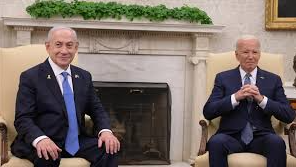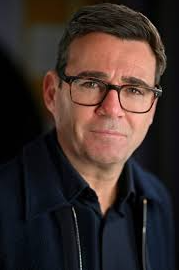Stars Including Paris Hilton, Billy Crystal, and Adam Brody Among Those Affected by Los Angeles Wildfires
Several high-profile celebrities, including Paris Hilton, Billy Crystal, and Adam Brody, have found themselves among the victims of the ferocious wildfires tearing through Los Angeles. Over 1,000 structures have been destroyed as multiple fires continue to rage in the area, affecting not only homes but also Hollywood’s renowned celebrity-filled neighbourhoods.
The catastrophic fires have been especially destructive in Pacific Palisades, a scenic enclave where hillside mansions face the threat of an advancing inferno. Since Tuesday, the flames have spread from a few hundred acres to over 15,000, leaving a swath of destruction. James Woods, a veteran actor known for his roles in Nixon and Casino, broke down in an emotional interview on CNN, recounting the loss of his property in Pacific Palisades. He expressed disbelief, saying, “One day you’re swimming in the pool, and the next day it’s all gone.” Despite the tragedy, he shared a moment of solace when his wife’s niece offered her piggy bank to help rebuild.
Billy Crystal, also devastated by the loss of his long-time home, shared a heartfelt statement, reflecting on the deep connection to the house where he and his wife raised their children. He described the home as a place filled with “love” and “beautiful memories” and emphasised that, while heartbroken, the support of their loved ones would help them endure the difficult times.
Paris Hilton also took to Instagram to share her grief, revealing that her Malibu property had been destroyed. She posted, “Watching our home burn to the ground on live TV is something no one should ever have to experience,” adding that her thoughts were with all those affected by the fires. Meanwhile, a property belonging to Adam Brody and his wife, actress Leighton Meester, was also reportedly lost in the blaze.
The devastating impact extends to other celebrities as well, including The Hills stars Spencer Pratt and Heidi Montag, who shared their experiences of seeing their home engulfed in flames. Though they managed to evacuate safely, Montag expressed her distress over the loss of their possessions.
Mandy Moore, known for her role in This Is Us, shared a poignant message on social media, expressing shock over the destruction. In her post, Moore revealed that their children’s school had been destroyed and many of their favourite spots were gone. Despite the devastation, she expressed hope for rebuilding their shattered community.
Ricki Lake, the beloved TV host, also expressed sorrow over losing her “dream home”, while other famous personalities such as Anthony Hopkins, John Goodman, Anna Faris, and Cary Elwes were among the many who reportedly lost their residences.
Miles Teller, star of Top Gun: Maverick, and his wife, Keleigh Sperry, also had their home destroyed, while Sperry posted on Instagram urging others to leave water for animals left behind during evacuations.
Mark Hamill, famous for his role as Luke Skywalker in Star Wars, called the fires the “most horrific” disaster since 1993, sharing that he had evacuated his Malibu home just in time to avoid the flames. Other stars such as Eugene Levy and Cameron Mathison, along with music legend Diane Warren, have also faced the loss of their homes.
In the midst of the chaos, Steve Guttenberg, star of Police Academy, remained behind to assist firefighters by moving cars and clearing paths for emergency vehicles. Local schools and iconic landmarks, including the Palisades Charter High School, which featured in the horror film Carrie, have also been devastated.
The damage has not only affected the homes of celebrities but also the broader community, with film premieres and star-studded events being cancelled. The Academy Awards nominations were postponed by two days, while upcoming events, including the Screen Actors Guild Awards, were called off due to the fires.
As new blazes erupt, including the Sunset fire in Hollywood Hills, the people of Los Angeles, including many famous figures, now face the enormous task of rebuilding their homes and lives after these catastrophic fires.


















